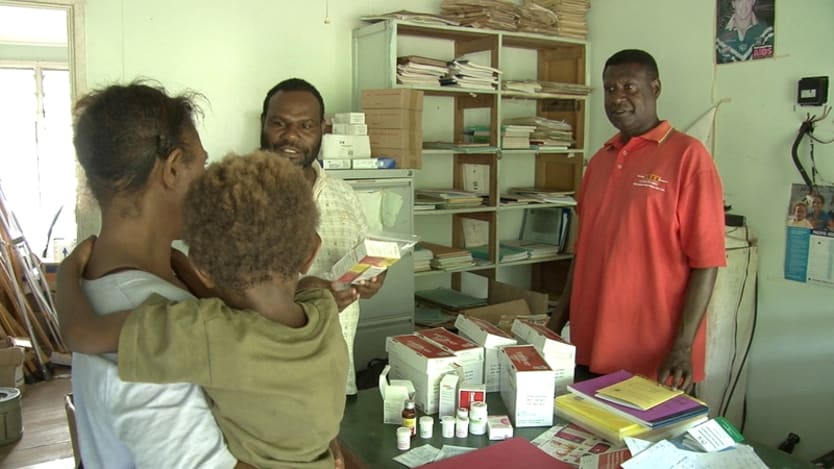
CANBERRA — On a global scale, the impact of tuberculosis in Australia is small — the country holds just over 1,400 of the 10 million people affected annually. But experts believe that this lack of exposure to TB among Australians — including medical practitioners — is reducing TB awareness among the community. And this is playing an important role in limiting the advocacy to pressure governments into greater action.
“TB anywhere is TB everywhere.”
— Amelia Christie, CEO, RESULTS International AustraliaWhile World TB Day, celebrated on March 24, came with a range of new announcements including a new report from Lancet Commission on tuberculosis, which provides a framework for delivering on the political commitments made by heads of state and government in October last year at the United Nations High-Level Meeting on TB, there still remains an important challenge: more funding.
“There is inadequate funding to finance the global plan to End TB and in particular, inadequate funding for research and development in TB,” Dr. Suman Majumdar, deputy program director for health security and co-head at the TB Elimination and Implementation Science Group at the Burnet Institute, told Devex.
“Despite significant progress over recent decades, TB continues to be the top infectious killer worldwide, claiming more than 4,300 lives per day. All U.N. member states have set a goal to end the TB epidemic by 2030 — that is in 11 years. But current actions and investments are not enough to reach this,” he said.
At a World TB Day event hosted by RESULTS International Australia and the Centenary Institute in Sydney last week, the message for action was clear: the impact of TB is beyond a development challenge.
More on TB:
► Scant improvement on TB underscores need for urgent actions, say campaigners
► Q&A: Why the world needs science and partnerships to tackle TB
► Georgia trials could revolutionize treatment of drug-resistant TB
A 36-year-old Australian TB survivor, whose name was not disclosed, discussed their experience of becoming infected with multidrug-resistant TB while working and living in China. After being diagnosed, they returned to Australia for 18 months of treatment — a process they described as “harrowing.”
“TB anywhere is TB everywhere, and even though the TB incidence is low in Australia, the country can never be TB free without addressing the problem in the Asia Pacific and globally,” Amelia Christie, CEO of RESULTS International Australia, told Devex.
“Discussing the TB situation in Australia not only makes people aware that the airborne illness doesn't discriminate, it also promotes the need for an increase in Australia's foreign aid budget to strengthen health systems abroad,” Christie said.
Risks of TB: The Australian case
The small number of active TB cases in Australia means that TB response in Australia is a specialized area of health — many general practitioners will never be exposed to TB.
For countries such as Australia, neighboring countries with a high TB burden create a risk. Papua New Guinea, for example, is only a short flight away from Australia and approximately 36,000 of Papua New Guinea's 8.4 million people contracted TB in 2017 with 5,300 TB related deaths. There's concern that the health problems in the Indo-Pacific region could become Australia’s problems too — which is why the Australian aid program is supporting research for TB, including multidrug resistance.
There is also the challenge of identifying latent TB, where individuals are infected but don’t have signs or symptoms of illness. The effects of TB can appear in the future. The rates of latent TB are significantly higher than active TB. For Australia, this affects approximately 5 percent of Australians, or more than 1 million people.
“Focusing on latent TB is the vital clinical strategy in eliminating TB in its entirety,” Majumdar said.
Building medical expertise and advocacy
Majumdar is among the specialists supporting the management of TB and drug-resistant TB in Australia and said all areas of the health care system need to be advocates — patients, community members, and health care workers. But the knowledge needs to be built.
“Health care workers in high burden TB countries are much more aware of TB and its diagnosis and treatment,” Majumdar said.
The focus on building knowledge of latent TB is actively being supported by Justin Denholm, medical director of the Victorian Tuberculosis Program with the Doherty Institute. Denholm is working to build and improve GP knowledge of TB through online video content.
The videos, to be expanded over the coming year, include guidance on diagnosing, treating, and managing latent TB — both in individual cases and the community. The videos will be supported by individual events and one-on-one training that go beyond GPs and include community-based nurses and other health practitioners working in communities where latent TB may exist to enable familiarity with the disease and the tools for managing it.
“I am hoping that a much larger group of people get the benefit of knowing about latent TB and having it treated, and GPs have a critical role to play in this,” Denholm told the Royal Australian College of General Practitioners.
And as new research and even guidelines — including new WHO guidelines for multidrug resistant TB — are implemented, it is the health profession that needs to be the frontline for building awareness among communities to improve awareness and demand for the new methods of treatment.
For countries such as Australia, Majumdar said Australia’s optimal role is to accelerate research to bring new tests, treatments, and a vaccine — coupled with capacity building in high-burden countries to eliminate TB.
And community awareness, with demand for government and global action, will be critical — with the education of health professionals in developing and developed countries playing an important role in ensuring the impact of TB is communicated effectively.
Search for articles
Most Read
- 1
- 2
- 3
- 4
- 5








